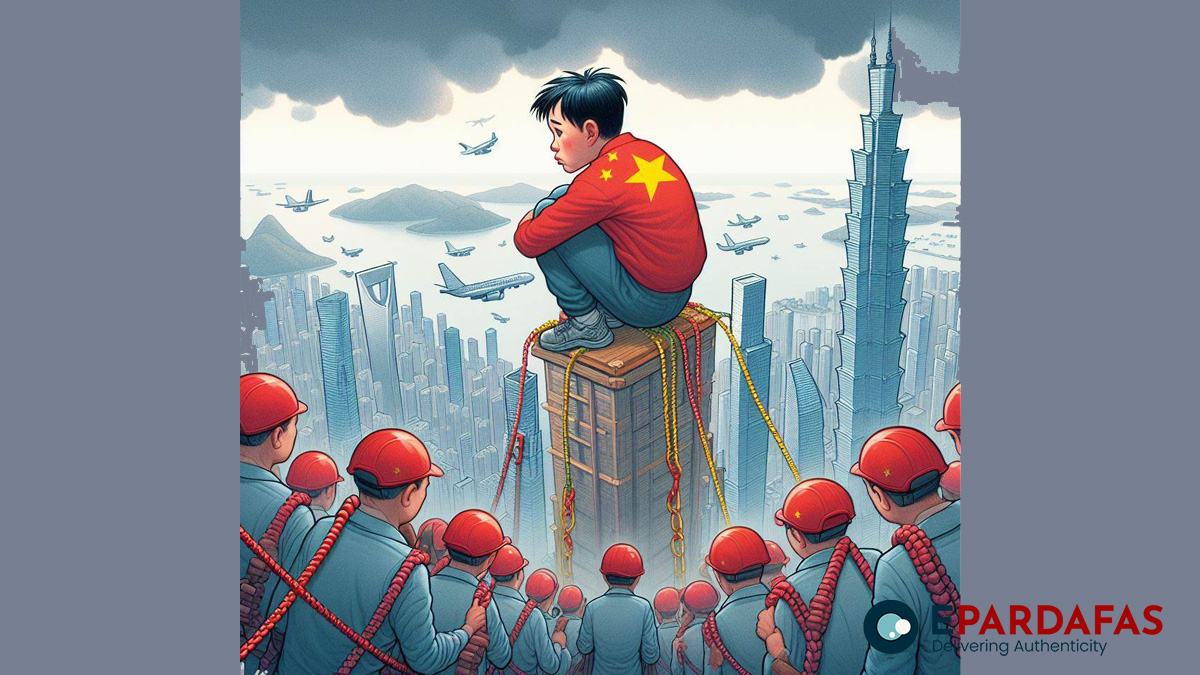
China Grapples with Soaring Unmarried Rates and Economic Downturn, Posing Demographic Challenges

In the face of an aging population and a shrinking workforce, China confronts significant demographic challenges, with the latest data revealing a pronounced decline in marriage rates among the younger generation. More than half of Chinese individuals between the ages of 25 and 29 remained unmarried in 2023, marking a stark contrast to figures from just a decade ago.
The economic landscape and high youth unemployment rate in 2023 have exacerbated concerns for young Chinese contemplating marriage. The recent data reflects a growing trend of postponing or forgoing marriage, with many citing economic uncertainties and the belief that marriage, childbirth, and financial commitments pose significant liabilities.
Zhang Yu, a 32-year-old working in northeast China, highlighted economic downturns and reduced income as deterrents to marriage. “Marriage, childbirth, and loans for houses and cars are all liabilities, which are overdrafts from the future,” he stated, expressing relief that he did not start a family amid salary cuts imposed by his employer.
Jacey Zhang, a 27-year-old from Beijing, echoed these sentiments, noting that without a stable job, finding a spouse becomes challenging. She humorously referred to herself as a “frustrated loser in society” but asserted that her current single status is economically more feasible than the financial demands of marriage.
Experts point to China’s record-high youth unemployment rate and the prevailing trend of “lying flat,” which rejects intense competition and societal expectations. Fang Xu, a lecturer at the University of California, Berkeley, emphasized the interconnectedness of low marriage rates and soaring youth unemployment, suggesting that financial constraints hinder both career and marriage aspirations.
China’s National Bureau of Statistics reported a peak urban unemployment rate of 21.3% among young people aged 16 to 24 in June 2023, with some estimates putting the rate even higher at 40%. Financial considerations are influencing decisions regarding marriage and childbirth, as young couples grapple with the challenges of securing dual incomes to support a family.
Government responses to the declining marriage rates include local policies incentivizing marriage, such as the controversial reward of $150 for newlywed brides in Changshan County, Zhejiang province. However, public reactions question the efficacy of such measures, emphasizing that financial incentives alone may not address the root causes of diminishing interest in marriage.
Despite a slight rebound in the marriage rate in 2023, the number of divorces also surged. Chinese President Xi Jinping’s call for the cultivation of a new culture of marriage and childbearing sparked debates on societal expectations, with some questioning the necessity of adhering to traditional norms.
As China grapples with these demographic challenges, the complex interplay of economic uncertainties, societal expectations, and evolving cultural attitudes continues to shape the choices of the younger generation, challenging conventional notions of marriage and family life, VOA Reported.












Comments